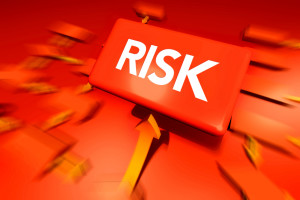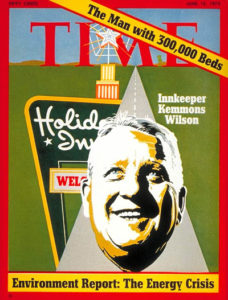
Making sense of risk, entrepreneurs & franchising
April 13, 2016 12:06 pm 1 CommentMaybe you’ve heard that entrepreneurs and risk takers buy franchises.
Long ago, while researching my first book about franchising in the early 1980s (it’s now out of print: Franchising: The Inside Story), I was under the impression that franchisees are entrepreneurs, and, of course, entrepreneurs are risk takers. But that shows you just how little I knew about entrepreneurs and risk takers. It also tells you how little I knew about franchising.
Back then, and even now to some extent, people tended to think that all business owners were entrepreneurs, and that all entrepreneurs were risk takers. But we’ve come a long way since then, especially with the development of successful franchises.
Who Qualifies As An Entrepreneur?
I got a big chunk of my initial franchise education by interviewing dozens of franchisees. When I asked them if they were entrepreneurs, and how they felt about taking financial risks, I got a much clearer understanding of not only entrepreneurs and risk taking, but also franchising. I quickly began to understand why franchising was popular – even back then – and successful.
Officially, an entrepreneur is “a person who organizes and operates a business or businesses, taking on greater than normal financial risks in order to do so.”
One of the key words in that definition is “organizes”. Franchisors organize businesses. Franchisees operate businesses. It’s a huge difference, and it’s what separates franchisees from entrepreneurs.
Another key word, or phrase, in that definition is “greater than normal financial risks”. Franchisors take all the risks initially and by doing so they reduce the risk for franchisees. Once again, the definition explains why a franchisee is not an entrepreneur.
What Makes A Franchisee?
The definition of a franchisee is “someone who has been given the right to sell a company’s goods or services in a particular area; a person who has been granted a franchise.”
Because some franchisees will argue that they, too, “organize” their businesses, I need to explain that the reference to “organizes” means that the entrepreneur creates a business, most likely from scratch. There is no business prior to the entrepreneur organizing it.
But with a franchisee, the business exists first. Yes, of course, there are exceptions (there are irresponsible franchisors who sell franchises before their time), but I’m referencing the norm. There are also franchisees who take “greater than normal financial risks,” but again, that’s not the norm.
A franchisor’s job is to create a business model or a system, and ultimately turn it into a brand. A good franchisor tests the system, operates the system, generates revenues and profits from the system, and then markets and sells the system to franchisees.
The Job Of The Good Franchisor
The good franchisor teaches the franchisees how to operate profitable businesses, and provides ongoing support to help franchisees when they need it. That’s how franchising works at its best, and it explains why franchising has become immensely popular and successful worldwide.
By definition, franchisors remove much of (but certainly not all of) the risk from franchising. Franchisors begin with an idea.
For example, when Kemmons Wilson drove his family from Memphis to Washington, D.C., for a holiday in the 1950s, he was outraged when the motels charged a fee for each of his children to spend the night in a room that he rented for himself and his wife.
“Children should stay free in a motel room with their parents,” he told his wife. And that gave him an idea, which his wife thought was laughable.
Holiday Inn As An Example
Just to prove his point, and impress his wife, Wilson returned to Memphis and created a business plan for a motel chain where children would stay free. It’s called Holiday Inn, now one of the world’s largest hotel chains. Before it was anything, it was just a laughable idea.
Wilson, a serial entrepreneur (at age 85 he was still involved in 50 different businesses), organized the Holiday Inn motel business. He created the concept from his idea, even borrowing the name from a 1942 movie, Holiday Inn, featuring Bing Crosby and Fred Astaire.
Initially, Holiday Inn wasn’t created as a franchise, but once Wilson proved its value as a business in Memphis, demand for the brand sprouted up across the USA. Rights to build and operate a Holiday Inn, using Wilson’s model and brand name, were granted to licensees, or franchisees, in various parts of the USA and eventually the world.
No Holiday Inn franchisee had to worry about organizing the business. Wilson provided schematics and blueprints along with the names of trusted suppliers. He knew where to buy furniture, equipment, sheets and pillows, and even light bulbs. He knew how to advertise a Holiday Inn to attract customers, and he shared all of his knowledge with his franchisees.
Turnkey Reduces Risk
In other words, Wilson provided a turnkey operation to franchisees, thus saving them the cost (and risk) of organizing the business. All they had to do, other than invest their time and money, was follow Wilson’s guidelines and instructions and within a matter of months they were operating a Holiday Inn with a unique promise to travelers: Kids Stay Free. Of course, other chains eventually copied that promise, but it was the brainchild of a franchisor who Time magazine featured on its cover in 1972.
Good franchisors, like the late Kemmons Wilson, save franchisees the lion’s share of risk when starting a business, and that’s why most successful franchisees do not consider themselves risk takers.
Risk takers put everything on the line with little or no assurance of a safety net. When they buy or develop a business from scratch they may invest their life savings, or they may borrow money from banks, family and friends. For risk takers, it’s do or die. And, by the way, risk takers seem to want it that way. The risk is more attractive to them than operating the business. Once they figure it out, once they develop their naked idea into a booming entity, they tend to move on and find their next opportunity to risk it all again.
Look For Good Track Records
Some franchisees also may be in do or die situations, but it’s not something they enjoy, and it’s surely something they can avoid. With a good franchise system, franchisees get a safety net. Again, that’s the norm.
If a franchisee selects a franchise brand with a good track record, one in which most of the franchisees have succeeded historically, the franchisee’s safety net is the franchisor (or the corporate office), the franchisor’s operating system, and support network.
Franchisees are not expected to figure it all out on their own. Franchises are sold with instructions, training and support. Franchisees can rely on these assets to succeed in business. Keep in mind these assets did not exist for the franchisor.
Oddly, and unfortunately, some franchisees insist on taking more risk than necessary:
- They buy franchises without doing due diligence.
- They buy franchises that they are not prepared to operate successfully because they lack the skills.
- They ignore the franchisor’s directions.
- They choose to come up with their own solutions.
- They make decisions that are not supported by the franchisor.
But a good franchisee, a successful franchisee, doesn’t need to be an entrepreneur or a risk taker. And that decision is almost entirely in the hands of the franchisee. It’s the franchisee’s responsibility, not the franchisor’s, to select a franchise brand that offers a safety net.
Granted, franchisors should share in the responsibility of making certain that they develop brands with safety nets for their franchisees, but come on now, we live in a greedy world where integrity and morality are sometimes in short supply. Franchising remains a “buyer beware” proposition, but you don’t need to be an entrepreneur, or take unprecedented risks, to succeed as a franchisee.
Dr. John Hayes does not sell franchises, but he helps franchise prospects discover franchise opportunities that make sense for them operationally and financially. Add your name to his list for a variety of valuable information.
Categorised in: Blog Articles, Buy a Franchise, Franchise Compatibility, Franchise due diligence, franchise opportunities
This post was written by John Hayes


1 Comment